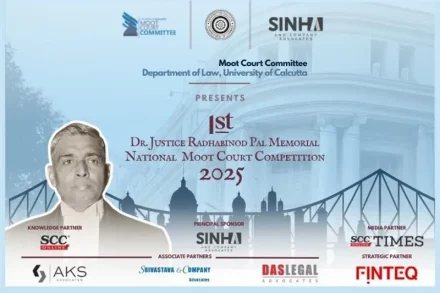
1st Dr. Justice Radhabinod Pal Memorial National Moot Court Competition, 2025
By the Moot Court Committee, Department of Law, University of Calcutta [May 17 – 18 & June 4; Hybrid; Cash Prizes Upto Rs. 1.13L]: Register by May 9!

By the Moot Court Committee, Department of Law, University of Calcutta [May 17 – 18 & June 4; Hybrid; Cash Prizes Upto Rs. 1.13L]: Register by May 9!
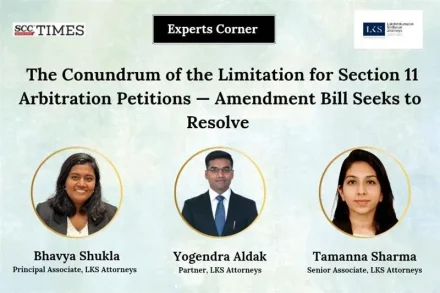
by Bhavya Shukla*, Yogendra Aldak** and Tamanna Sharma***
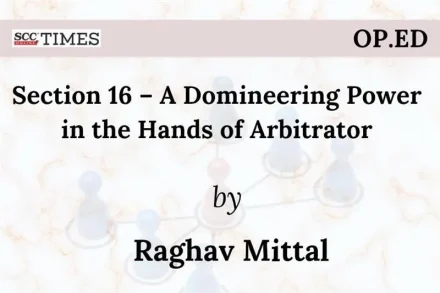
by Raghav Mittal*
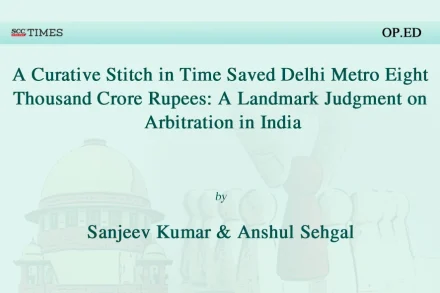
by Sanjeev Kumar* and Anshul Sehgal**
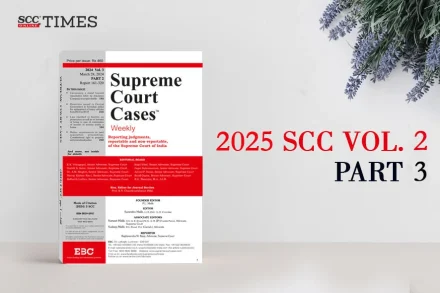
Arbitration and Conciliation Act, 1996 — Ss. 7, 34 and 37 — Arbitration agreement — Bindingness of, on non-signatory — Group of Companies Doctrine
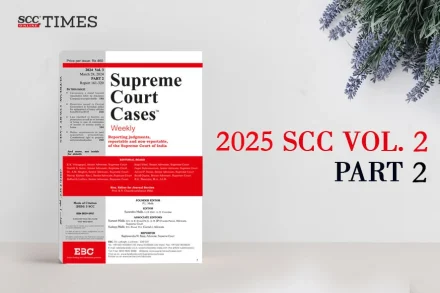
Arbitration and Conciliation Act, 1996 — S. 11(6) — Limited scope of jurisdiction of Court
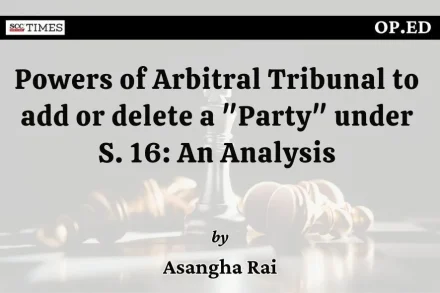
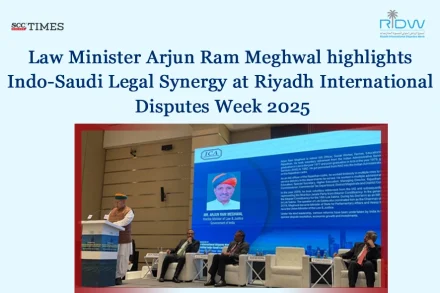
“Let us collectively translate this wisdom into action and showcase the best legal template to the 21st-century world.”
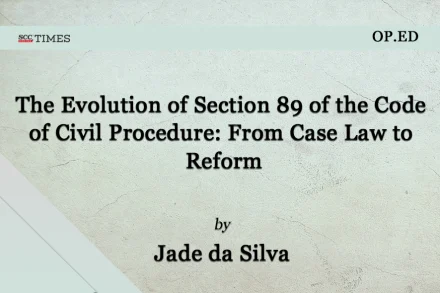

The arbitration would take place under the aegis of the Delhi International Arbitration Centre and would abide by its rules and regulations.
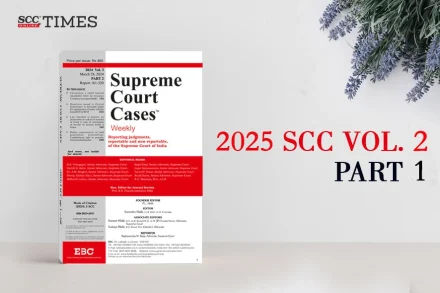
Arbitration and Conciliation Act, 1996 — Ss. 11, 8 and 11 — Parties to arbitration proceedings — Arbitration agreement/clause
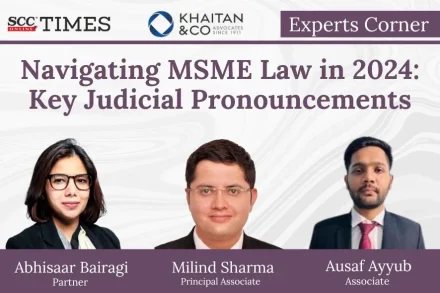
by Abhisaar Bairagi*, Milind Sharma** and Ausaf Ayyub***
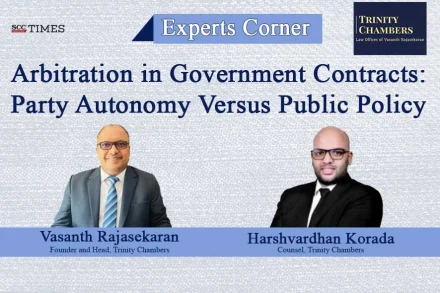
by Vasanth Rajasekaran* and Harshvardhan Korada**
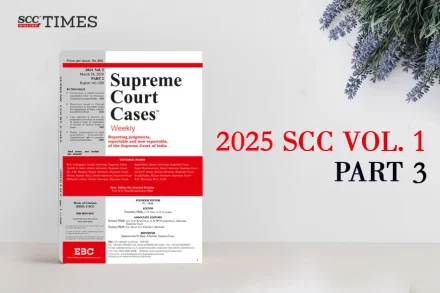
Conversion rate of foreign currency for computation of awarded amount must be considered
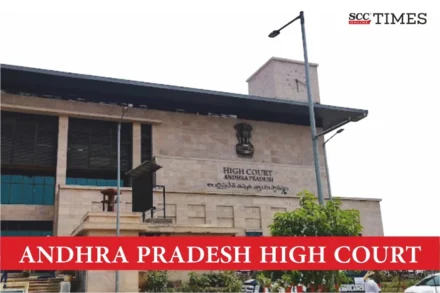
The Court observed that though the appellant contended that the net worth of the company is Rs.91 crores and is not a fly-by-night company, no physical assets or any other alternative security is provided either before the Single Judge or before the present Court.
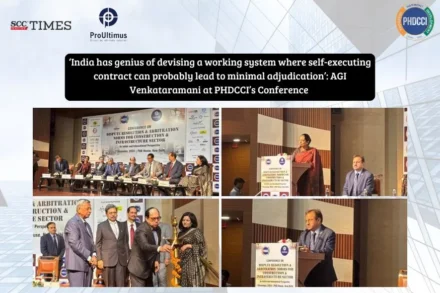
In association with ProUltimus Consulting, PHD Chamber of Commerce and Industry (PHDCCI) organised the conference on ‘Dispute Resolution & Arbitration Norms for Construction & Infrastructure Sectors’.
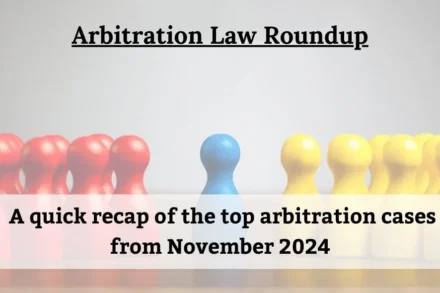
Top arbitration cases on unilateral appointment, seat of arbitration, limitation period, scope of judicial scrutiny and more.
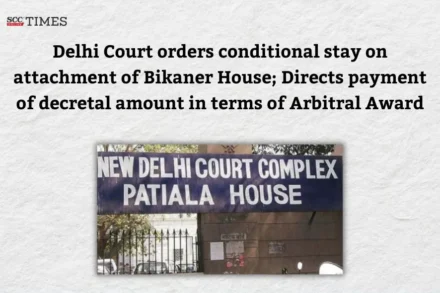
The Court had ordered the attachment of the Bikaner House to enforce payment since neither did the Nagar Palika of the State of Rajasthan comply with the court order to file an affidavit of assets nor did it pay the petitioner per the arbitral award.
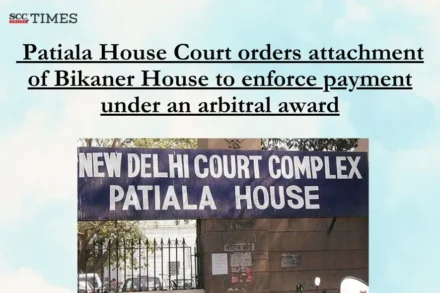
The Nagar Palika of the State of Rajasthan failed to comply with court order to file an affidavit of assets despite being given multiple opportunities and failed to pay the petitioner in accordance with the arbitral award.
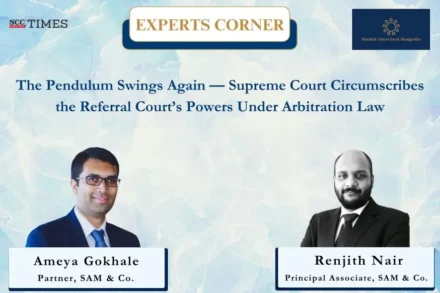
by Ameya Gokhale* and Renjith Nair**